What It Means to Be a Student-Athlete at Babson
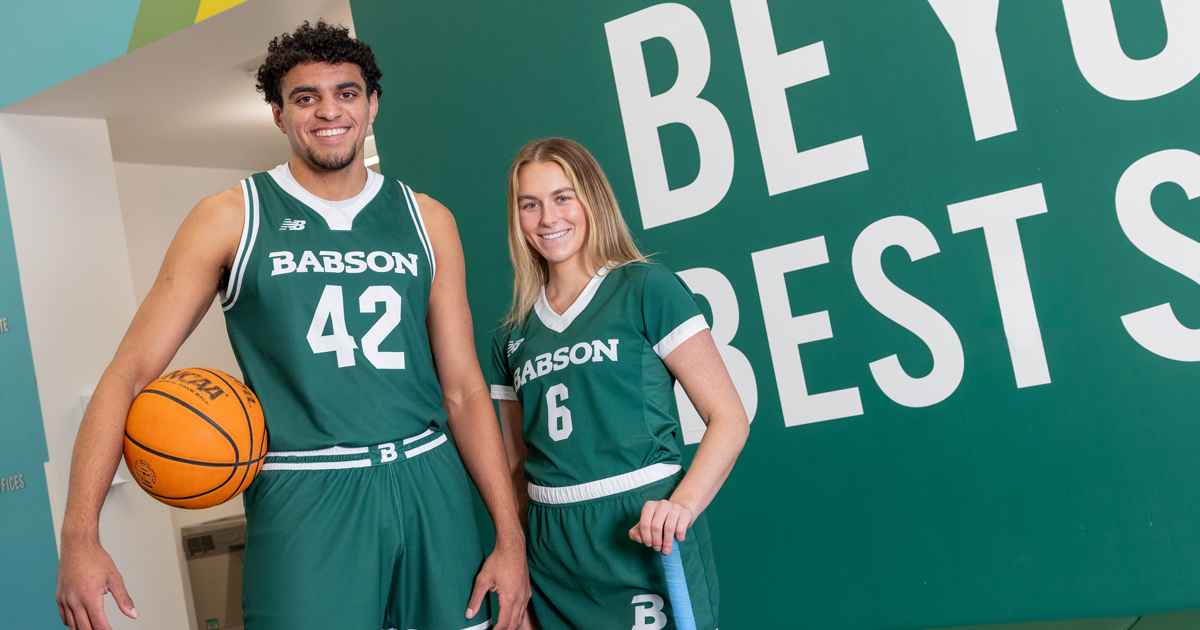
Nate Amado ’25 likes to arrive early to practice. He needs to put up his shots.
The leading scorer this past season in Babson’s conference, the NEWMAC, the basketball player strives to keep his shot efficient and consistent. That’s why he comes early to Staake Gymnasium and gets to work.
BABSON MAGAZINE: Read the complete Spring 2025 issue.
He doesn’t typically listen to music, and his teammates may not even be around yet. None of that matters. Amado’s focus is the ball and the basket. He practices free throws and jump shots. He works on his ball handling.
A hundred shots, 150 shots, 200 shots. If the ball goes awry, he thinks about what went wrong and adjusts. If a streak of bad shooting plagued him the day before, those lingering memories are wiped away with each swish. “You see the ball go in,” he says, “and you get that out of your mind.”
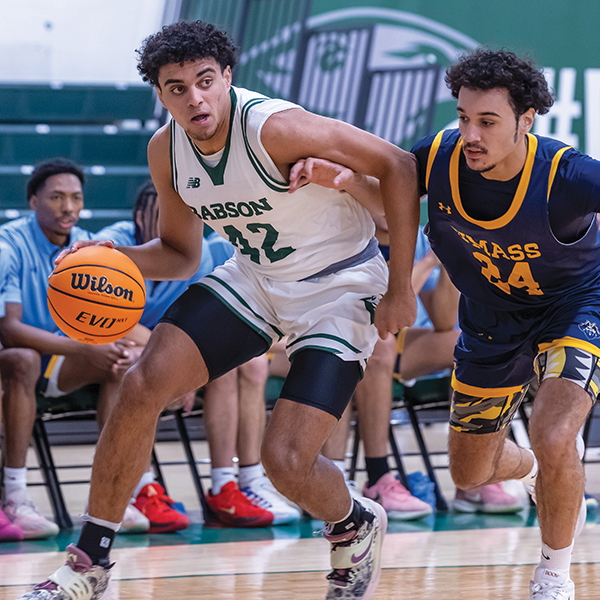
Amado puts in this extra shooting at the gym even though, as a student-athlete, his free time is precious. On a typical day, he may be in class until 1 p.m., and once he eats lunch, he makes his way to the gym around 2. After putting up a couple of hundred shots, he’s then meeting with the trainer to stretch and warm up and, by 4 p.m., he is watching film with the team before the full practice begins at 4:30. Afterward, there may be a lifting session before he showers, eats dinner, and finally gets to his homework.
That’s a full day, but success demands it. “I put everything into this,” Amado says. “If you want to be great at your sport, you have to make that commitment.”
Athletics is an integral part of life at Babson. About 500 students, or roughly one-sixth of the undergraduate student body, play on one of Babson’s 23 varsity sports. Another 2,500 or more participate in the school’s 34 club sports. Students also join intramural teams and keep the Len Green Recreation and Athletics Complex humming with activity. In its ranking of Babson as the No. 2 Best College in America last year, The Wall Street Journal also ranked the College No. 11 for Student Experience, of which athletics plays a prominent part.
Amado’s crowded schedule is typical for the College’s varsity athletes, who spend many hours in the gym, on the fields, and on the court honing their skills. At the same time, they are living a life that’s characteristic of any Babson student. They’re going to class, doing homework, hanging with friends, leading clubs, starting ventures, studying abroad, interning. “We have a special group of people here. They are dedicated and driven,” says Mike Lynch, Babson’s Pamela P. and Brian M. Barefoot Associate Vice President for Athletics and Athletics Advancement. “They are looking to take advantage of everything Babson has to offer.”
That makes for a robust, rigorous, and rewarding life, one in which student-athletes are growing as people and preparing for their futures while playing a sport they love. “You get lucky enough to be able to play in college—there’s nothing more you can ask for,” Amado says.
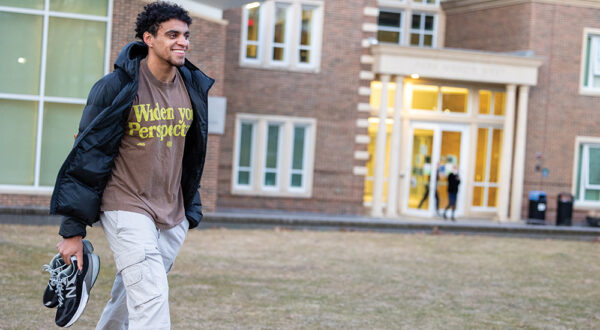
A Team of Best Friends
To understand the joys and demands of being a student-athlete, one needs to walk a mile or two in their sneakers. Take Camille Marsh ’25 as another example. She’s a midfielder on the field hockey team. Just like Amado, she knows how unforgiving the schedule of a student-athlete can be.
“You have to prioritize so many things at once. We have to know how to balance it all,” she says. “I think I have really good time management skills. Field hockey has taught me to be better at that.”
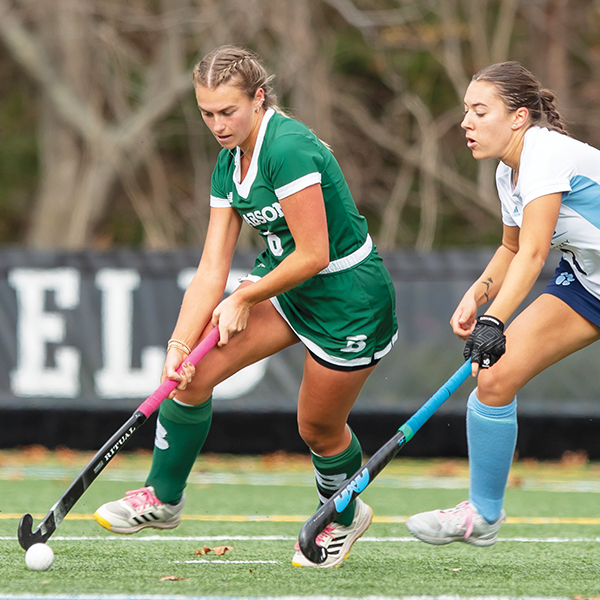
Over her four years on the team, Marsh and her fellow Beavers have seen much success, never losing a conference game during that time and earning four straight NCAA tournament appearances. During Marsh’s junior year, the team made the Final Four, and she still remembers all the family and friends who traveled to Virginia to cheer on the team. “I have never felt that much support in my life,” Marsh says.
To be a member of a sports team is to be a part of a community. The members of the field hockey team are often together, Marsh says, especially during the season. They’ll text one another their whereabouts, in case people want to meet up. They eat together, gather for game and movie nights, and grab a long table in Horn Library so they can work on homework together. “We are a group of 29 best friends,” Marsh says.
She is particularly close to the four other seniors on the team. They live together in a suite in McCullough Hall, and when Marsh studied abroad last year in Barcelona, Spain, she was able to meet up all over Europe with three of them who were studying abroad at the same time. “It is so nice to always have people to rely on,” Marsh says. “They have made such an impact on my life.”
Because Marsh and her teammates are so close, and because they all are determined to improve as a team, they can be honest with one another about their efforts on the playing field. Feedback is accepted and expected. “Everyone is so kind and cares about everyone else succeeding,” Marsh says. “Everyone knows they have the potential to grow. At the end of the day, we all want to win and do better than the year before.”
Those interpersonal, human skills utilized on the team—communication, collaboration, leadership—carry over to other aspects of Marsh’s life. “It can translate so easily to school and professional experiences,” she says. “I am able to collaborate more effectively. I am able to lead teams. I feel more confident.”
That personal development, that flourishing both on and off the field, represents one of the critical benefits of being a student-athlete.
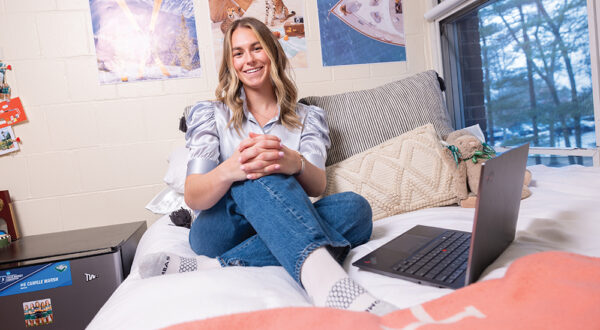
The Right Balance
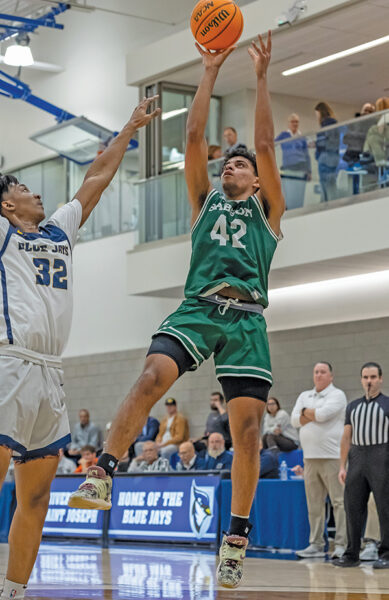
Kristen Getchell, an associate professor of business communications and the Karani Term Chair, knows firsthand about the personal development one undergoes as a student-athlete, having played on the tennis team as an undergraduate. “You learn a lot about yourself in athletics that sets you up for success in other places,” Getchell says. “I like to say athletics is a lab for our students to practice leadership and teamwork.”
Because she is such a supporter of college sports, Getchell serves as Babson’s NCAA faculty athletics representative, a role that acts as a liaison between professors and athletics. She helps both sides to come together and address any concerns that can arise, such as a scheduling conflict or a need for tutoring. “I have a lot of respect for our student-athletes,” she says. “I am very impressed by them.”
Babson’s varsity teams compete in the NCAA’s Division III, which unlike the big-money, high-pressure upper echelons of college sports, isn’t as all-encompassing of student-athletes’ lives. Yes, athletes at Babson work hard, but they still have time to join clubs, serve internships, and excel in the classroom.
“I believe D-3 is the best representation of college athletics,” Getchell says. “It is very much about balance. Any D-3 program understands that. They are truly student-athletes.” As such, what happens in the classroom is not an afterthought. “They need to prioritize academics,” Getchell says. “That is not even questioned here, and Babson is one of the most successful D-3 programs in the country.”
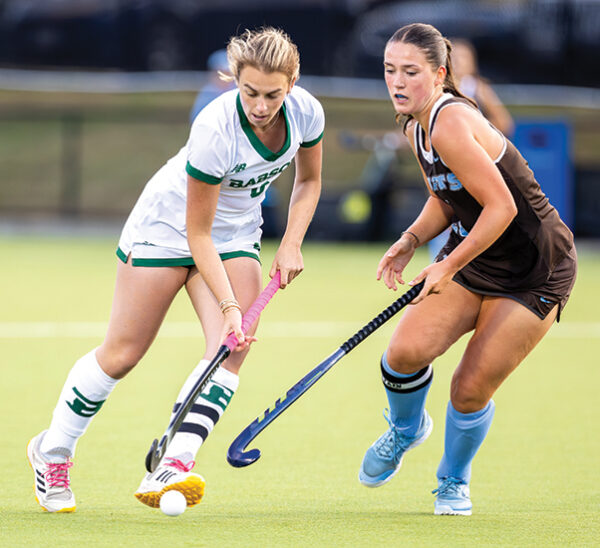
Lynch has seen how Babson’s student-athletes, on a bus trip to a game, will flip open their laptops to squeeze in some homework before arriving. Last year, the night before a critical NCAA tournament quarterfinal game, he watched as a half-dozen members of the men’s soccer team gathered in the hotel lobby. Their season may have been on the line the next day, but that evening, they had a different focus: a project due for class. “They want to be as good as they can be as members of the student-athlete population,” Lynch says.
Not that winning isn’t on their minds. Thanks to funding from the College and pivotal donations from alumni, Babson is able to significantly invest in team travel, coaching, support services, and facilities for athletics. As a result, more and more of Babson’s 23 varsity teams are chasing postseason success every year. Just in the last decade, Babson teams have made more than 80 appearances in national tournaments. “They are championship driven,” Lynch says.
For Stephen Spinelli Jr. MBA’92, PhD, some of his favorite memories as the College’s president have been watching Babson teams compete. To be in the stands is to witness their character and competitive spirit, to appreciate all the time they’ve spent in pursuit of both athletic and academic excellence. “On the playing field and in the classroom, they set an example for teammates and classmates,” he says, “and leave a lasting standard for the next generation of students at Babson.”
“You learn a lot about yourself in athletics that sets you up for success in other places. I like to say athletics is a lab for our students to practice leadership and teamwork.”
Kristen Getchell, associate professor of business communications and the Karani Term Chair
Feeling Grateful
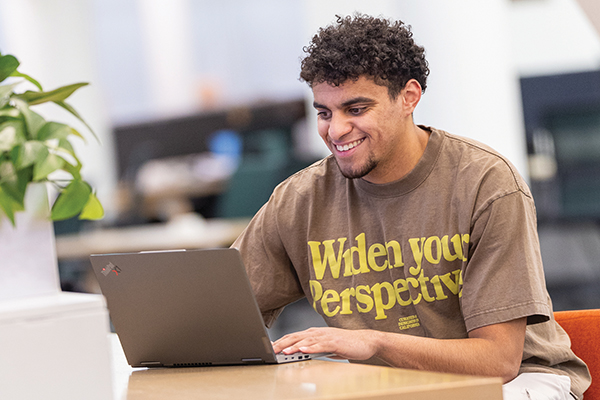
Both Amado and Marsh are seniors, which means the yearlong effort of being a student-athlete, from in-season practices and games to offseason workouts and training, is coming to an end. To their post-Babson lives, they’ll bring with them their resiliency and dedication, as well as the connections they’ve made in the athletics alumni network. Many students form relationships with alumni, who support them during their playing days and then mentor them in their careers. “It is an inside path to a great future,” Lynch says.
The two seniors also bring with them their memories. Amado doesn’t linger on the tough losses the team endured during his four years. “You can look at most games we lost, and you can pick out something we could have done better. That’s life,” he says. “I can be at peace with it. I’m aware of the errors I made and how I learned from them.”
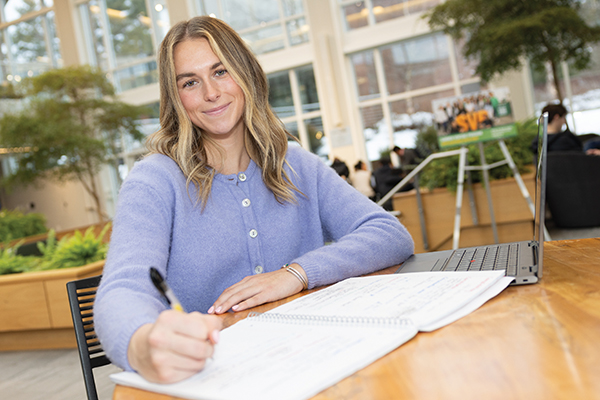
Instead, he thinks of his friends and the times they spent together, such as those moments in the locker room before a practice, the team all together, talking about life and laughing. “It’s stuff like that you’ll miss,” he says. “You’re as close to 10, 15 guys as it gets.”
After graduation, Amado plans to return to Babson to earn a master’s degree in business analytics. Marsh, meanwhile, is seeking work in marketing. She’s holding tightly to her final weeks on campus. She admits to feeling sentimental, about the people she has met, about the team, about all she has learned.
“I made the most of my time here,” she says. “I think about how incredibly grateful I am to have found a place like Babson.”




